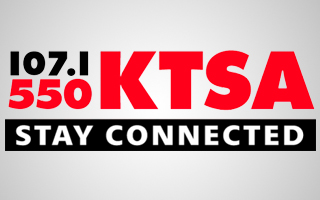House to vote on sweeping government and elections reform bill

“This is something that is enormously popular among the American people. The American people want to reduce the role of big, dark, special interest money in politics, which is preventing so many good things from happening. The people want to see an end to voter suppression,” Speaker Nancy Pelosi said about H.R. 1 on Tuesday.
The House passed H.R. 1 in 2019 after Democrats took back the majority, but was not considered in the Republican-controlled Senate. Democrats now have a narrow 50-seat majority in the Senate, but most legislation requires 60 votes to advance. The bill is unlikely to gain support from ten Republican senators, so its prospects of passing in the Senate are grim.
The bill, known as the “For the People Act,” would overhaul government ethics and campaign finance laws, and seek to strengthen voting rights by creating automatic voter registration and expanding access to early and absentee voting. The vote on the bill comes as Republican-controlled state legislatures across the country seek to restrict voting rights, including measures to limit mail-in voting and impose stricter voter identification requirements.
“We believe that H.R. 1 needs to pass because the Republican state legislators, concerned about their losses, either in their own states or in the country, are again upping their efforts to make it more difficult for people to vote,” House Majority Leader Steny Hoyer told reporters on Tuesday.
The Supreme Court, which has a conservative 6 to 3 majority, is also considering two Arizona laws that restrict access to voting, which Democrats argue disproportionately affect minority voters. If the court upholds these laws, it could allow legislatures to impose even more restrictive voting laws, and a higher standard for litigants seeking to challenge them.
Progressives have argued that the Senate should eliminate the filibuster, which would allow legislation to advance with a simple majority, in order to pass their key priorities. Some Democrats argue that it is important to eliminate the filibuster particularly so that voting rights legislation can be passed, such as the For the People Act and the John Lewis Voting Rights Act, which would restore provisions of the 1965 Voting Rights Act struck down by the Supreme Court. Former President Barack Obama called for eliminating the filibuster so that voting rights laws could pass the Senate during his eulogy at Lewis’ funeral last summer.
Democratic Senator Raphael Warnock suggested there could be a limited exception to filibuster rules for bills related to voting and civil rights. Warnock was elected to represent Georgia in a January special election, and the Republican-controlled state legislature has recently advanced bills to make early and mail-in voting more difficult.
“Voting rights is preservative of all other rights, and we have to do everything we can to preserve the voices of the people in our democracy,” Warnock told reporters on Tuesday. “I think that the issues are urgent enough to leave all options on the table.”
However, Democratic Senators Joe Manchin and Kyrsten Sinema have expressed opposition to eliminating the filibuster. Manchin on Monday said that he would “never” change his mind about ending the filibuster.
“Never! Jesus Christ! What don’t you understand about never?” Manchin said.
You Might Also Like



